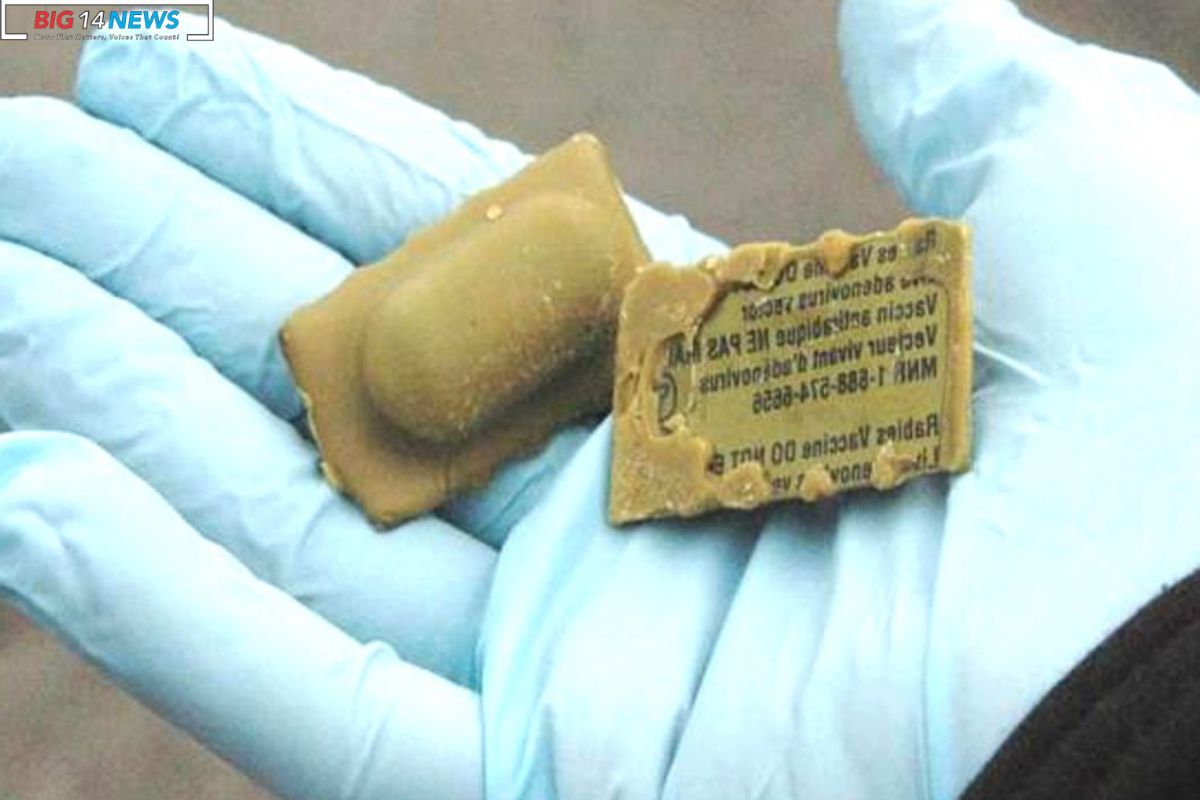Alabama Triumph Over Rabies: In the early 1900s, rabies claimed over 100 lives annually in the United States. Today, thanks to the United States Department of Agriculture (USDA), that number has dropped to five or fewer deaths per year. The USDA’s efforts have played a vital role in achieving this significant reduction. While rabies still affects hundreds of domestic animals and livestock, the numbers were historically much higher.
Rabies is a viral infection that can be transmitted to all mammal species, but only a few act as reservoirs for the virus to spread. Since 1995, the USDA has been running a yearly campaign to combat rabies, with a primary focus on raccoons, critical hosts for the virus.
The vaccination methods employed by the USDA are unique. Each year, millions of oral rabies vaccines are dropped across fourteen states, mainly along the eastern seaboard. In urban and suburban areas, officials strategically place bait where raccoons are likely to encounter and consume it, such as near dumpsters. In rural regions, a more efficient technique is utilized.
In rural areas, low-flying planes scatter vaccines using a tube and conveyor belt, ensuring widespread distribution. The program covers vast territories, spanning tens of thousands of square miles. With its success, the USDA has effectively halted the geographic spread of rabies in the eastern United States, according to Jordona Kirby, a USDA wildlife biologist and field coordinator for the National Rabies Management Program.
Looking ahead, the USDA aims to completely eradicate raccoon rabies. This long-term vision involves progressively moving the extent of the disease, currently along the Appalachian Mountains from Maine to Alabama, back towards the ocean.
The oral rabies vaccine, a significant tool in this program, was developed in the 1960s and 70s. Initially used in field trials targeting red foxes in Switzerland, its success prompted the USDA to collaborate with states in the mid 90s to initiate oral rabies vaccination programs for wildlife.


ALSO READ: Advocate Health Southern Symphony: A Year of Progress and Promise
A vital factor in the raccoon vaccination efforts lies in creating bait that appeals to raccoons. Jordona Kirby notes that the team offers fish-flavored and sweet-flavored baits, both of which raccoons find enticing. Who would have guessed that raccoons have a preference for a vanilla oral vaccine?
The USDAs raccoon vaccination program stands as a testament to innovative and targeted approaches in rabies control. By tailoring their methods to suit the habits and preferences of specific animals, the agency has made remarkable strides in safeguarding public health and protecting wildlife populations.
Also Read: Wilmer Woman Receives 35 Month Sentence: for Meth Distribution Conspiraacy
Our Reader’s Queries
Is rabies vaccine mandatory in Alabama?
All canidae and felidae must have a USDA licensed rabies vaccine. It’s illegal to own, maintain, sell, or trade these animals without the vaccine, regardless of any other laws.
What US state has never had a case of rabies?
Hawaii stands out as a State because it has never had a single report of rabies being acquired by a person or animal within its borders.
Is rabies common in Alabama?
The raccoon variant is the most frequently seen strain of rabies in domestic animals. Raccoons in Russell and Lee counties in Alabama often become infected with rabies.
Where can I get a rabies shot for humans in Alabama?
To procure the vaccine, doctors can reach out to Sanofi Pasteur at 1-800-822-2463 and fill out the necessary form. For HRIG orders, physicians can contact leading distributors or Sanofi Pasteur at 1-800-822-2463, or Grifols and complete the request form.

